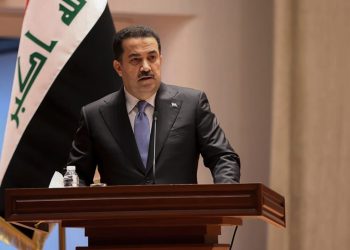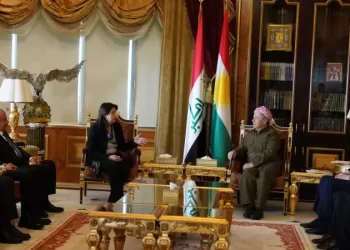As the International Criminal Court Intensifies Its War Crimes Probe, Israel and the U.S. Scramble to Avert Legal Repercussions for Top Officials
The looming specter of international law’s strictest enforcer, the International Criminal Court (ICC), appears to have found a formidable target in its crosshairs — Israeli Prime Minister Benjamin Netanyahu. Reports from The Times of Israel on Sunday indicate a crescendo of trepidation within Israeli ranks, driven by the plausible issuance of arrest warrants for the nation’s high echelon — an unprecedented move that could see Netanyahu and other senior political figures answering to allegations of war crimes in the Gaza Strip.
The ICC’s pointed inquiry into the alleged violations within the occupied Palestinian territories, initiated in 2021, has become a fulcrum for global discourse on the accountability of nations and their leaders. The ripple effects of these developments have reached the highest offices in Israel and the United States, prompting a flurry of diplomatic and legal tactics to circumvent potential indictments.
At the heart of the controversy lies a fundamental disjunction: Israel, steadfast in its non-recognition of the ICC’s jurisdiction, has rejected calls for cooperation with the investigation. Meanwhile, the ICC asserts its authority over the sites of the alleged crimes — Gaza, the West Bank, and East Jerusalem. This impasse reaches beyond legalistic wrangling into the realm of international power politics and the principles of universal human rights.
Netanyahu’s apprehensions, as alluded to by inside sources, mirror a broader national anxiety that the anchorage Israel has long found in its ally, the United States, might not provide sanctuary from the ICC’s reach. The global institution, established to prosecute and bring to justice those responsible for the gravest crimes, has historically seen its mandate challenged by the reality of political clout and international relations.
Nonetheless, the sustained momentum of the ICC’s investigation rakes the coals of a smoldering debate: the intrinsic value of global justice mechanisms and their role as deterrents to future violations. The examination of Israel’s military operations in Gaza particularly scrutinizes the campaigns that resulted in harrowing civilian casualties — events heavily underscored by human rights organizations as disproportionate and indiscriminate.
The partnership between Israel and the U.S. is emerging to unveil a sophisticated, albeit controversial, strategy to shield Israeli officials from prosecution. This alignment has incited consternation among human rights proponents who argue that influential states are maneuvering to trample on the very essence of international justice — its impartiality and objectivity.
The narrative unfurling within the ICC’s corridors in The Hague reflects a profound dichotomy. Cross-examination of the institution’s abilities and scope tests the resilience of the international justice system. For advocates of Palestinian rights, the ICC represents a long-overdue avenue for redress and accountability, a counter-narrative to the impunity that they argue has characterized the Israeli military’s operations.
Israeli critics, in parallel, point to the ICC’s efforts as a politicized witch hunt, a subversion of the court’s intended mission by a selective and biased agenda. They underscore Israel’s own judicial apparatus, insisting it is more than capable of investigating and arbitrating any alleged misconduct by its personnel.
The whispers of impending ICC arrest warrants for a head of state and his administration signal a possible tectonic shift in global legal precedent. Should such warrants come to pass, the reverberations will be felt far beyond the Middle East, challenging the very ground upon which political leaders tread. It will question the insulation of authority figures from the consequences of their actions, and the real strength of international law.
Despite Israel’s and the U.S.’s explicit efforts to block the ICC’s initiatives, the insistence on pursuing the investigation echoes a universal mantra: that no individual, irrespective of their power, should sit above the law. The global community watches with bated breath as the ICC forges ahead, fortified by the principle that justice should be blind in its pursuit but clear in its findings.
As these events unfold, the complexities of international law and the geopolitics of the Middle East intertwine in a Gordian knot, awaiting either a judicious unravelling or an incisive cut. The question remains whether the ICC’s endeavors will serve as a beacon of accountability or if the entrenchments of power will once again prove immutable.
In the balance stand notions of sovereignty, jurisprudence, and above all, humanity’s collective aspiration towards civility in conflict — an aspiration that, more than arguably, necessitates the reckoning and realization that even the highest offices are bound by the moral arc of the universe, which, as history insists, bends towards justice.








